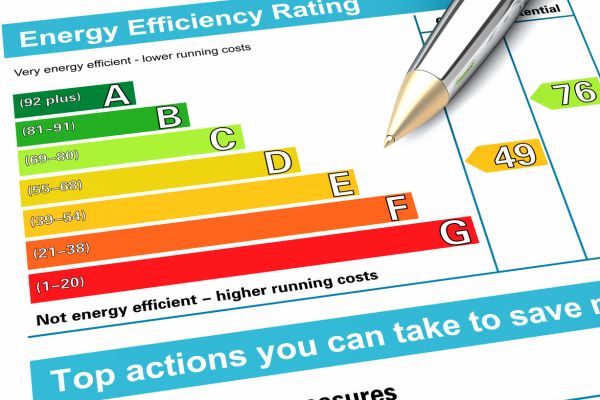We're hiring! if you'd like to join one of our award winning teams, read more on our Careers page.
Energy Performance Certificates (EPCs) are a crucial part of the UK's strategy to improve energy efficiency in buildings. Introduced under the Energy Performance of Buildings (England and Wales) Regulations 2012, EPCs provide a rating for the energy efficiency of buildings, helping landlords, buyers, and tenants make informed decisions.
Key Requirements
EPC for Sale and Rent: An EPC is required when a property is sold or rented.
The certificate rates the building's energy efficiency on a scale from A (most efficient) to G (least efficient).
Minimum Energy Efficiency Standards (MEES): Since April 2018, landlords must ensure their properties meet a minimum EPC rating of E before they can be let.
This requirement is set to become more stringent, with a proposed increase to a C rating by 2027.
Exemptions: Landlords can apply for exemptions if they cannot meet the minimum standards, but they must register these exemptions with the local authority and they typically last for five years.
- High Cost Exemption: If the cost of making the necessary improvements exceeds £3,500, the landlord can apply for this exemption.
- All Improvements Made: If all possible cost-effective improvements have been made but the property still does not meet the required EPC rating, the landlord can apply for this exemption.
- Consent Exemption: If the tenant or a third party with an interest in the property refuses consent for the improvements, the landlord can apply for this exemption.
- Devaluation Exemption: If the landlord can demonstrate that making the necessary improvements would reduce the market value of the property by more than 5%, they can apply for this exemption.
- Recently became a Landlord: If the landlord has recently become the owner or has a new lease, they can apply for a temporary exemption that lasts for 6 months.
Penalties: Non-compliance with EPC regulations can result in financial penalties. Landlords who fail to provide an EPC when required or let a substandard property can face fines as well as other repercussions:
- Financial Penalties: Landlords who let a property without a valid EPC or with an EPC rating below the minimum standard (currently E, but set to increase to C by 2027) can be fined. The fines can be up to £5,000 for breaches of the Minimum Energy Efficiency Standards.
- Enforcement Notices: Local authorities have the power to issue enforcement notices requiring landlords to improve the energy efficiency of their properties and failure to comply with these notices can lead to further penalties.
- Prohibition Orders: In severe cases, local authorities can issue prohibition orders, preventing landlords from letting the property until it meets the required EPC standards.
- Publication of Non-Compliance: Details of non-compliant landlords can be published by local authorities, which can damage their reputation and affect their ability to rent out properties in the future.

Who is responsible when works are commissioned during the Lease?
In commercial leases, the responsibility for ensuring compliance with EPC regulations generally falls on the landlord. This means that if works have been completed on the commercial premises during the lease, the landlord is still responsible for ensuring the property meets the required EPC standards.
However, there can be some nuances depending on the specific terms of the lease agreement. For example, a lease might include clauses that shift some responsibilities to the tenant, such as covering the cost of energy efficiency improvements, or ensuring alterations do not negatively impact the EPC rating. The landlord remains responsible for ensuring the property meets EPC requirements, even if the tenant commissions works during the lease term.
It's a good idea for both parties to clarify these responsibilities in the lease agreement and consult with legal professionals to avoid disputes.
Upcoming Updates to the Minimum Energy Efficiency Standards Regulations
Extension to all Commercial Properties: From April 2023, MEES regulations have been extended to apply to all private rented commercial properties, even where there has been no change in tenancy arrangements.
Stricter Standards: The government has proposed raising the minimum EPC rating for non-domestic properties to EPC B by 2030, with an interim target of EPC C by 2027.
Legislative Proposals: The "Minimum Energy Efficiency of Buildings Bill 2022-2023" is currently going through the legislative process and if passed, it will formalise these new targets and further strengthen the regulations.
These updates reflect the government's commitment to improving energy efficiency and reducing carbon emissions from buildings. It is important for landlords and property owners to stay informed and ensure their properties comply with these evolving standards.



 Khalid Mughal
Khalid Mughal Roger Matharoo
Roger Matharoo Connor Martin
Connor Martin
Comments